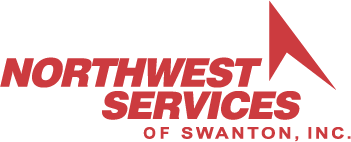Completing the search for your first home is an exhilarating experience. You’re likely trying to keep track of numerous details about making the right choice. We believe that understanding your potential new HVAC system is vital. The property’s HVAC system represents a substantial investment and source of potential long-term costs, which is why due diligence helps all first-time homebuyers.
In the following guide, we’ll share seven tips for discovering all there is to know about a home’s heating and cooling system. And if you want a deeper opinion from the experts, consider calling Northwest Services. Our seasoned technicians can weigh in on your options with industry insights you won’t find elsewhere.
1. What HVAC System Are You Working With?
Start by clarifying what type of HVAC system the home includes. Furnaces tend to last longer compared to air conditioners, and relatively new types of HVAC equipment like heat pumps feature average life spans longer than ever. Getting the details on the make and specific model ensures you have a much better sense of how much routine maintenance it might need.
2. What Is the Current System’s Age?
Another good idea is to find out how old the HVAC system is when you’re looking at a new home. In general, HVAC systems tend to run for about 10-12 years. Having the knowledge of when it was installed helps you plan for possible repair needs or considerations if it might shut down for good. Older systems are more prone to problems, so budgeting for a replacement unit might be needed faster than expected.
3. Is the Warranty Still in Effect?
Check if the HVAC system is still under warranty. If it is, that’s great news because it can assist with maintenance expenses. HVAC warranties often cover parts and labor, but the details in each policy will vary. Make sure you go over any terms you don’t recognize to ensure you understand your coverage and the likelihood of out-of-pocket costs.
4. Has the System Ever Been Professionally Serviced or Maintained?
Next, examine the maintenance history of the HVAC system, if that information is available. This kind of information can reveal if the system constantly broke down or how much upkeep was provided. Inquire about key tasks such as changing the air filter, which is a positive sign indicating regularly scheduled tune-ups.
5. Do You Know Its Energy Efficiency Ratings?
Selecting a system with strong energy efficiency isn’t just smart; it leads to smaller utility bills and less of an impact on the environment. Check out the seasonal energy efficiency ratio (SEER) ratings for air conditioning as well as the annual fuel utilization efficiency (AFUE) for furnaces. Higher SEER ratings mean better cooling across the entire season, while high AFUE ratings indicate that the fuel is more effectively burned for useable heat.
6. Have You Noticed Signs of Problems After Completing an Informal Inspection?
Even without heating and cooling expertise, it’s still a good idea to inspect the HVAC system on your own. Look for any concerning items that weren’t mentioned by the seller or real estate agent. This includes strange noises, spots with uneven heating or cooling and attempts to cover up any visible damage.
7. Have You Asked Your Local HVAC Professional?
If you’re unsure about the overall state of the HVAC system, it’s never a bad idea to get an assessment and recommendation from trained HVAC technicians. They are skilled at identifying things you might miss, including leaking coolant, bad electrical connections or flawed ductwork.
A Call with Northwest Services Helps Take the Stress Out of Your Home-Buying Journey
Finding your first home should be thrilling, and Northwest Services can ensure yours is too. Connect with us at 419-548-5017. We can talk about how our HVAC services give you peace of mind, giving you what you need to make an offer with confidence.
